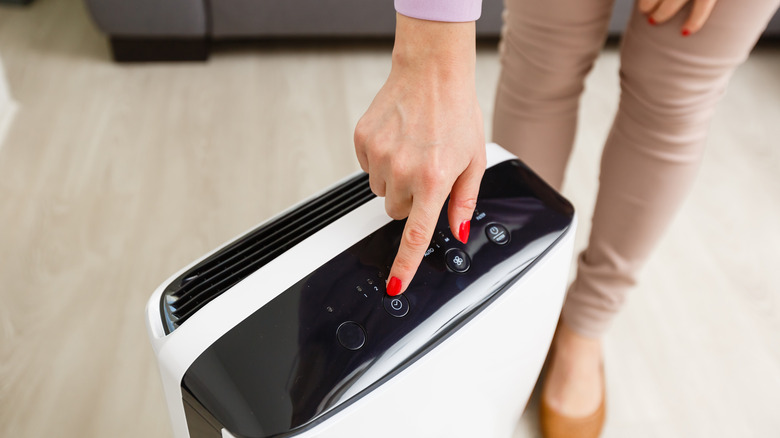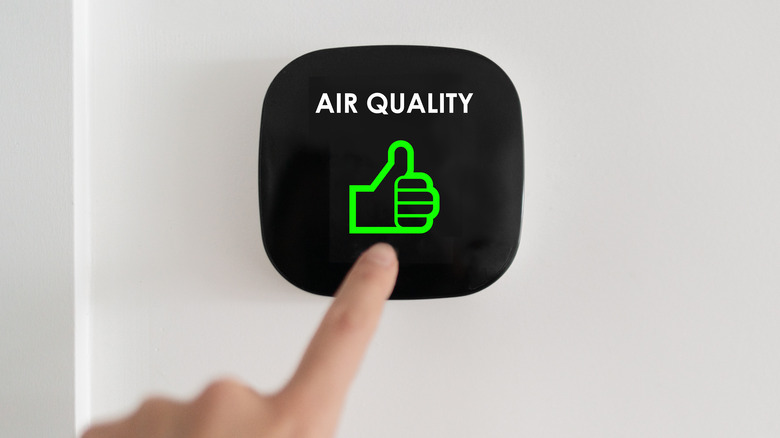Do UV Air Purifiers Actually Do Anything?
You buy an air purifier to make the air in a space more breathable. Whether you are currently trying to clean the air in your home or want to protect your family, you want a purifier that works. Is a UV air purifier right for you?
Americans spend 90% of their time indoors, according to the Environmental Protection Agency (EPA). And just like us, pollutants like to stay inside, where they're two to five times more likely to be than outdoors. Air pollutants can cause headaches, fatigue, respiratory diseases, and nose, throat, and eye irritation. Sources of pollutants and irritants can include particulate matter, combustion byproducts, radon, pesticides, dust, pet dander, mold, asbestos, and volatile organic compounds (VOC), among others.
Air purifiers typically work by drawing air into the unit and pushing it through filters that capture the pollutants before pushing the air back out (via U.S. News & World Report). UV air purifiers work this same way, but they additionally send the air through a chamber exposed to UV-C light (per Medical News Today). UV-C radiation is the highest energy portion of the UV spectrum (via the U.S. Food & Drug Administration). Like other UV light, it is emitted from the sun but blocked by the ozone layer, so humans usually aren't exposed to its dangerously powerful radiation. So can UV air purifiers really use this radiation to burn off pollutants in the air?
UV light can kill bacteria
UV-C has been considered a useful disinfectant for killing or inactivating microbes in the air, according to an article in Public Health Reports. Its effectiveness, though, can change depending on where the light is and the circulation in the room. While UV-C light can be effective, it may not clean the air as part of a purifier. In an interview with The Healthy, Patricia Fabian, an associate professor of environmental health at Boston University's School of Public Health, said, "You need to have a virus or bacteria spend enough time in the UV for it to be effective." Similarly, a 2006 study found that although air cleaners with UV-C lamps killed or inactivated bacteria trapped in them within 60 minutes, they did not make the air any cleaner. They also cannot effectively remove harmful gas or VOC from the air (per EPA).
Additionally, UV air purifiers may harm your health as they emit ozone, reports Medical News Today. While the ozone in the atmosphere protects humans from the sun, it can cause symptoms in your home, such as coughing, inflamed airways, and worsened asthma and lung disease symptoms. Some UV purifiers come with a HEPA filter which has been found to be effective at capturing pollen, mold, viruses, and bacteria in the air (via EPA). HEPA or high-efficiency particulate air filters are pleated mechanical filters that can theoretically remove at least 99.97% of airborne particles. HEPA filters are a safer bet than UV purifiers.


